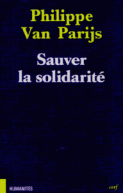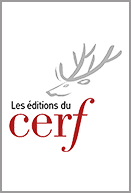
Philosophie pratique de la drogue
Collection Passages
400 pages - avril 2011
37,00€
Comment devient-on dépendant aux drogues et autres consommations psycho-actives ? Comment essaie-t-on d'en sortir ? Que valent les politiques publiques de la drogue ? Telles sont les questions abordées dans cet ouvrage, traitées à partir de témoignages d'usagers, recueillis à Paris et à New York. Témoins privilégiés des conditions individuelles, sociales et neuropsychiques d'entrée dans un parcours addictif, les anciens usagers revendiquent leur liberté d'avoir consommé, pour leur bien-être, des produits dangereux, tout en rendant compte en détail et sans fard des dégâts personnels qui ont pu en découler. À l'éthique de la drogue succède donc une éthique de la sortie qu'on cherche à garantir par de nouvelles habitudes et de nouveaux engagements. La philosophie pratique de la drogue qui ressort de ces témoignages est libertaire sur un plan individuel, mais collectivement responsable, en termes notamment de prévention, de réduction des dommages et d'accompagnement des usagers. Cette posture implique une reconsidération des politiques publiques répressives mais largement impuissantes devant le phénomène social de l'addiction, qui n'a cessé de croître avec le développement des sociétés marchandes.
--
How do people become addicted to drugs and other psycho-active substances? How do they try to free themselves of the addiction? Is public anti-drug policy effective? These questions are treated in this book, starting out from users’ testimonies gathered in Paris and New York. First-hand witnesses of the individual, social and neuropsychic conditions under which people enter into a path leading to addiction, former drug users proclaim their freedom to consume dangerous substances for their own well-being, while giving an uncompromising description of the resulting personal damage. So the ethic of drugs is replaced by an ethic of a ‘way out’, which they try to guarantee with new habits and new engagements. The practical philosophy of drugs that emerges from these testimonies is libertarian at an individual level, but collectively responsible, especially in terms of prevention, limiting the damage done and assisting the users. This attitude requires that we reconsider public policies of repression, mostly powerless in the face of the social phenomenon of addiction which has been in constant increase since the development of a market society.
--
How do people become addicted to drugs and other psycho-active substances? How do they try to free themselves of the addiction? Is public anti-drug policy effective? These questions are treated in this book, starting out from users’ testimonies gathered in Paris and New York. First-hand witnesses of the individual, social and neuropsychic conditions under which people enter into a path leading to addiction, former drug users proclaim their freedom to consume dangerous substances for their own well-being, while giving an uncompromising description of the resulting personal damage. So the ethic of drugs is replaced by an ethic of a ‘way out’, which they try to guarantee with new habits and new engagements. The practical philosophy of drugs that emerges from these testimonies is libertarian at an individual level, but collectively responsible, especially in terms of prevention, limiting the damage done and assisting the users. This attitude requires that we reconsider public policies of repression, mostly powerless in the face of the social phenomenon of addiction which has been in constant increase since the development of a market society.
- Dimensions : 145x235x27
- ISBN : 9782204093026
- Poids : 590 grammes






